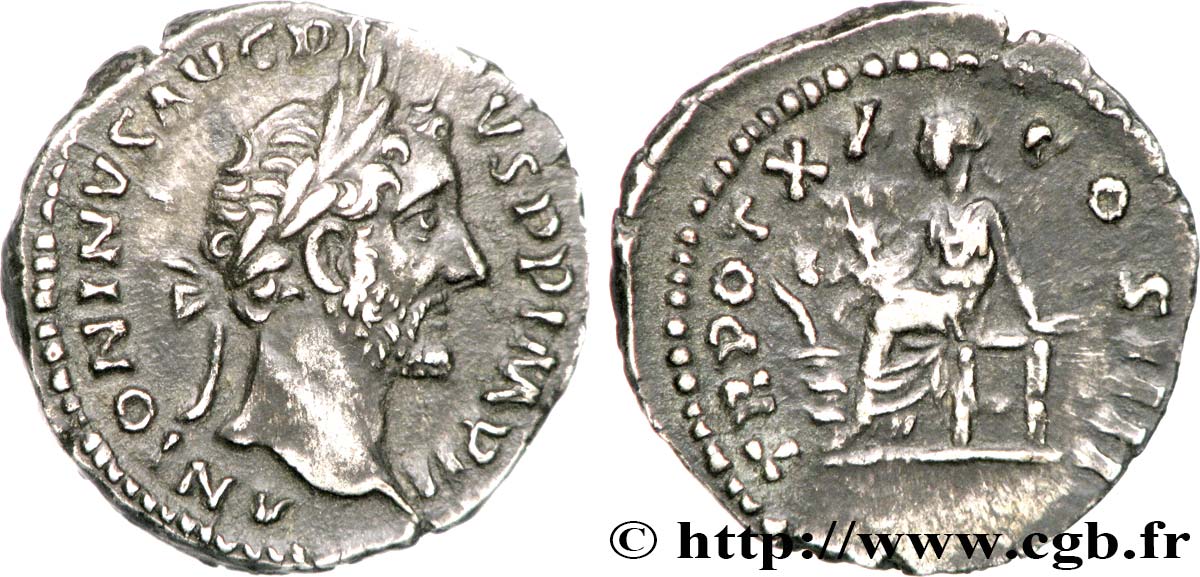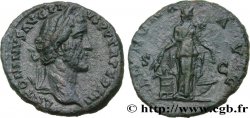brm_229105 - ANTONINUS PIUS Denier
Not available.
Item sold on our e-shop (2022)
Price : 115.00 €
Item sold on our e-shop (2022)
Price : 115.00 €
Type : Denier
Date: 157
Mint name / Town : Roma
Metal : silver
Millesimal fineness : 850 ‰
Diameter : 18 mm
Orientation dies : 7 h.
Weight : 3,22 g.
Coments on the condition:
Exemplaire sur un petit flan épais, irrégulier. Très beau portrait. Très beau portrait de style fin et de haut relief. Revers de style fin, mais de frappe un peu molle. Belle patine noire de collection ancienne avec des reflets dorés
Catalogue references :
Obverse
Obverse legend : ANTONINVS AVG PI-VS P P IMP II.
Obverse description : Tête d'Antonin laurée à droite (O*).
Obverse translation : "Antoninus Augustus Pius Pater Patriæ Imperator iterum", (Antonin auguste pieux père de la patrie revêtu de la deuxième acclamation impériale).
Reverse
Reverse legend : TR POT XX - COS IIII.
Reverse description : Salus (la Santé) assise à gauche, la main gauche appuyée sur son siège et tenant de la main droite, une patère, nourrissant un serpent enroulé autour d'un autel.
Reverse translation : "Tribunicia Potestate Vicesimum Consul quartum" (revêtu de la vingtième puissance tribunicienne consul pour la quatrième fois).
Commentary
Un seul ruban visible. Césure de légende de droit inhabituelle.








 Report a mistake
Report a mistake Print the page
Print the page Share my selection
Share my selection Ask a question
Ask a question Consign / sell
Consign / sell
 Full data
Full data



